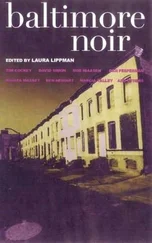Owen Wister - Lady Baltimore
Здесь есть возможность читать онлайн «Owen Wister - Lady Baltimore» весь текст электронной книги совершенно бесплатно (целиком полную версию без сокращений). В некоторых случаях можно слушать аудио, скачать через торрент в формате fb2 и присутствует краткое содержание. Жанр: Вестерн, на английском языке. Описание произведения, (предисловие) а так же отзывы посетителей доступны на портале библиотеки ЛибКат.
- Название:Lady Baltimore
- Автор:
- Жанр:
- Год:неизвестен
- ISBN:нет данных
- Рейтинг книги:5 / 5. Голосов: 1
-
Избранное:Добавить в избранное
- Отзывы:
-
Ваша оценка:
- 100
- 1
- 2
- 3
- 4
- 5
Lady Baltimore: краткое содержание, описание и аннотация
Предлагаем к чтению аннотацию, описание, краткое содержание или предисловие (зависит от того, что написал сам автор книги «Lady Baltimore»). Если вы не нашли необходимую информацию о книге — напишите в комментариях, мы постараемся отыскать её.
Lady Baltimore — читать онлайн бесплатно полную книгу (весь текст) целиком
Ниже представлен текст книги, разбитый по страницам. Система сохранения места последней прочитанной страницы, позволяет с удобством читать онлайн бесплатно книгу «Lady Baltimore», без необходимости каждый раз заново искать на чём Вы остановились. Поставьте закладку, и сможете в любой момент перейти на страницу, на которой закончили чтение.
Интервал:
Закладка:
"Who says that?" he inquired; and upon my telling him, "I hope so," he said, "I hope so. But just now Uncle Sam 'aspires to descend.'"
I laughed at his counter-quotation. "You know your classics, if you don't know Tennyson."
He, too, laughed. "Don't tell Aunt Eliza!"
"Tell her what?"
"That I didn't recognize Tennyson. My Aunt Eliza educated me — and she thinks Tennyson about the only poet worth reading since — well, since Byron and Sir Walter at the very latest!"
"Neither she nor Sir Walter come down to modern poetry — or to alcoholic girls." His tone, on these last words, changed.
Again, as when he had said "an urgent matter," I seemed to feel hovering above us what must be his ceaseless preoccupation; and I wondered if he had found, upon visiting Newport, Miss Hortense sitting and calling for "high-balls."
I gave him a lead. "The worst of it is that a girl who would like to behave herself decently finds that propriety puts her out of the running. The men flock off to the other kind."
He was following me with watching eyes.
"And you know," I continued, "what an anxious Newport parent does on finding her girl on the brink of being a failure."
"I can imagine," he answered, "that she scolds her like the dickens."
"Oh, nothing so ineffectual! She makes her keep up with the others, you know. Makes her do things she'd rather not do."
"High-balls, you mean?"
"Anything, my friend; anything to keep up."
He had a comic suggestion. "Driven to drink by her mother! Well, it's, at any rate, a new cause for old effects." He paused. It seemed strangely to bring to him some sort of relief. "That would explain a great deal," he said.
Was he thus explaining to himself his lady-love, or rather certain Newport aspects of her which had, so to speak, jarred upon his Kings Port notions of what a lady might properly do? I sat on my gravestone with my wonder, and my now-dawning desire to help him (if improbably I could), to get him out of it, if he were really in it; and he sat on his gravestone opposite, with the path between us, and the little noiseless breeze rustling the white irises, and bearing hither and thither the soft perfume of the roses. His boy face, lean, high-strung, brooding, was full of suppressed contentions. I made myself, during our silence, state his possible problem: "He doesn't love her any more, he won't admit this to himself; he intends to go through with it, and he's catching at any justification of what he has seen in her that has chilled him, so that he may, poor wretch! coax back his lost illusion." Well, if that was it, what in the world could I, or anybody, do about it?
His next remark was transparent enough. "Do you approve of young ladies smoking?"
I met his question with another: "What reasons can be urged against it?"
He was quick. "Then you don't mind it?" There was actual hope in the way he rushed at this.
I laughed. "I didn't say I didn't mind it." (As a matter of fact I do mind it; but it seemed best not to say so to him.)
He fell off again. "I certainly saw very nice people doing it up there."
I filled this out. "You'll see very nice people doing it everywhere."
"Not in Kings Port! At least, not my sort of people!" He stiffly proclaimed this.
I tried to draw him out. "But is there, after all, any valid objection to it?"
But he was off on a preceding speculation. "A mother or any parent," he said, "might encourage the daughter to smoke, too. And the girl might take it up so as not to be thought peculiar where she was, and then she might drop it very gladly."
I became specific. "Drop it, you mean, when she came to a place where doing it would be thought — well, in bad style?"
"Or for the better reason," he answered, "that she didn't really like it herself."
"How much you don't 'really like it' yourself!" I remarked.
This time he was slow. "Well — well — why need they? Are not their lips more innocent than ours? Is not the association somewhat—?"
"My dear fellow," I interrupted, "the association is, I think you'll have to agree, scarcely of my making!"
"That's true enough," he laughed. "And, as you say, very nice people do it everywhere. But not here. Have you ever noticed," he now inquired with continued transparency, "how much harder they are on each other than we are on them?"
"Oh, yes! I've noticed that." I surmised it was this sort of thing he had earlier choked himself off from telling me in his unfinished complaint about his aunt; but I was to learn later that on this occasion it was upon the poor boy himself and not on the smoking habits of Miss Rieppe, that his aunt had heavily descended. I also reflected that if cigarettes were the only thing he deprecated in the lady of his choice, the lost illusion might be coaxed back. The trouble was that deprecated something fairly distant from cigarettes. The cake was my quite sufficient trouble; it stuck in my throat worse than the probably magnified gossip I had heard; this, for the present, I could manage to swallow.
He came out now with a personal note. "I suppose you think I'm a ninny."
"Never in the wildest dream!"
"Well, but too innocent for a man, anyhow."
"That would be an insult," I declared laughingly.
"For I'm not innocent in the least. You'll find we're all men here, just as much as any men in the North you could pick out. South Carolina has never lacked sporting blood, sir. But in Newport — well, sir, we gentlemen down here, when we wish a certain atmosphere and all that, have always been accustomed to seek the demi-monde."
"So it was with us until the women changed it."
"The women, sir?" He was innocent!
"The 'ladies,' as you Southerners so chivalrously continue to style them. The rich new fashionable ladies became so desperate in their competition for men's allegiance that they — well, some of them would, in the point of conversation, greatly scandalize the smart demi-monde."
He nodded. "Yes. I heard men say things in drawing-rooms to ladies that a gentleman here would have been taken out and shot for. And don't you agree with me, sir, that good taste itself should be a sort of religion? I don't mean to say anything sacrilegious, but it seems to me that even if one has ceased to believe some parts of the Bible, even if one does not always obey the Ten Commandments, one is bound, not as a believer but as a gentleman, to remember the difference between grossness and refinement, between excess and restraint — that one can have and keep just as the pagan Greeks did, a moral elegance."
He astonished me, this ardent, ideal, troubled boy; so innocent regarding the glaring facts of our new prosperity, so finely penetrating as to some of the mysteries of the soul. But he was of old Huguenot blood, and of careful and gentle upbringing; and it was delightful to find such a young man left upon our American soil untainted by the present fashionable idolatries.
"I bow to your creed of 'moral elegance,'" I cried. "It never dies. It has outlasted all the mobs and all the religions."
"They seemed to think," he continued, pursuing his Newport train of thought, "that to prove you were a dead game sport you must behave like — behave like—"
"Like a herd of swine," I suggested.
He was merry. "Ah, if they only would — completely!"
"Completely what?"
"Behave so. Rush over a steep place into the sea."
We sat in the quiet relish of his Scriptural idea, and the western crimson and the twilight began to come and mingle with the perfumes. John Mayrant's face changed from its vivacity to a sort of pensive wistfulness, which, for all the dash and spirit in his delicate features, was somehow the final thing one got from the boy's expression. It was as though the noble memories of his race looked out of his eyes, seeking new chances for distinction, and found instead a soil laid waste, an empty fatherland, a people benumbed past rousing. Had he not said, "Poor Kings Port!" as he tapped the gravestone? Moral elegance could scarcely permit a sigh more direct.
Читать дальшеИнтервал:
Закладка:
Похожие книги на «Lady Baltimore»
Представляем Вашему вниманию похожие книги на «Lady Baltimore» списком для выбора. Мы отобрали схожую по названию и смыслу литературу в надежде предоставить читателям больше вариантов отыскать новые, интересные, ещё непрочитанные произведения.
Обсуждение, отзывы о книге «Lady Baltimore» и просто собственные мнения читателей. Оставьте ваши комментарии, напишите, что Вы думаете о произведении, его смысле или главных героях. Укажите что конкретно понравилось, а что нет, и почему Вы так считаете.










